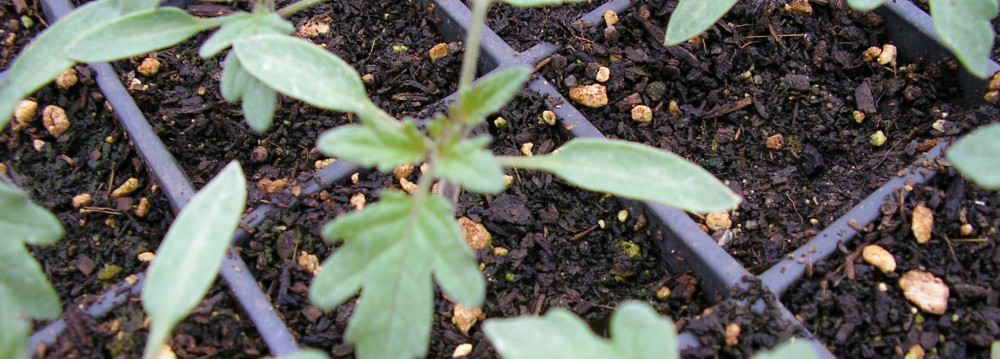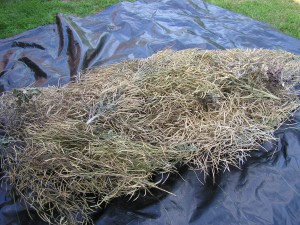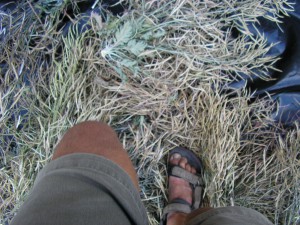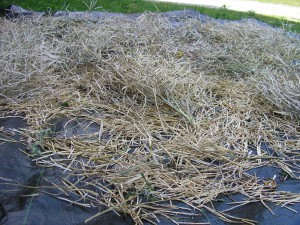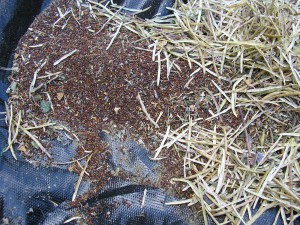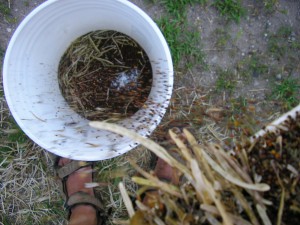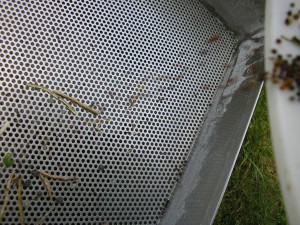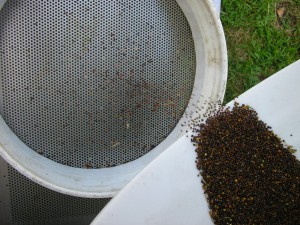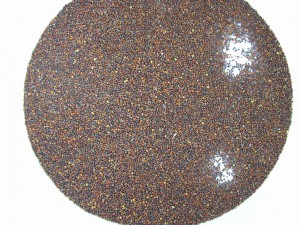Riverbend Farm Newsletter October 20, 2013
My life is dominated by the weather (like you couldn’t tell). Right now the temperature is 30º. It is breezy and cloudy, much warmer than I expected. Last night the NWS forecast ( Bob Weisman doesn’t work weekends) was a low of 26º. We are usually a couple degrees colder than that, so it is warm this morning.
We are at the point of the season where a few degrees more or less makes a huge difference. Temperatures below 28º are considered killing frosts. The summer annuals all die at that temperature. That was two weeks ago. Somewhere around 24º is a hard freeze, cold enough to damage crops in the mustard family. That would put an end to all the leafy greens except kale. We had a low of 26º very early Sunday morning. It takes temperatures of about 20º to damage the kales. Cover crops like oats and peas keep growing until the temperature drops to 10º.
Once it gets above freezing we will see what there is to harvest.
Sunday morning had all the makings for a perfect day. Cold and rainy, too miserable to do much outside and a fire blazing in the stove. Perfect.
I did have a few things that need doing outside. I have to split some wood, but that’s in the woodshed. The water heater in the greenhouse needs some attention. The combination of heat and humidity in the greenhouse has rotted out the burner. It needs a new water heater but I would just as soon not buy one and have it sit out there all winter.
I salvaged a burner out of a heater that my neighbor was scrapping and tried to adapt to this heater. The pilot won’t hold a flame for some reason and the burner is not putting out the heat that I would expect. It’s really time for a new one. Although, this set up may work to keep the winter squash warm. Setting the temperature as high as it will go keeps the burner running all the time, negating the need for the pilot and the lazy burner keeps the water warm enough to keep the floor warm.
Last week was another good one for orders and we just finished up our CSA. All the tomato trellis strings have been cut and the stakes pulled out. All the cabbage has been harvested and stashed in the root cellar along with some turnips, winter radishes, and potatoes.
There are still a lot of potatoes that need to be dug. It hasn’t been cold enough long enough to freeze the ground yet. Today we will work on getting the rest of them out.
I finally got around to harvesting a bucket of grapes for jelly. They are a mixture of wild and old Swensen Minnesota varieties. The prospect of a hard freeze clarifies what needs to be done.
Tracy at the Birchwood is having an 18th anniversary party on the 28th and it will be the kickoff for the Kickstarter campaign to raise some money for the long planned expansion of the Birchwood. If you have seen their kitchen you know they need it. Tracy says it better than I can. Here is a link to what she has to say: http://birchwoodcafe.com/posts/4. It is a good cause.
Greg
